16 start with A start with A


Departing from the prevailing scholarship, Jalloh characterizes the Fula businesses as independent, rather than appendages of Western expatriate commerce. In addition to establishing successful businesses, Fula merchants established Islamic educational institutions for propogating the Muslim faith and promoting Islamic scholarship.
This study also examines the evolution of Fula chieftaincy from the colonial era to the postcolonial period and documents the importance of mercantile wealth and networks in the election of Fula chiefs in Freetown. African Entrepreneurship makes an important contribution to the understudied role of African business in Sierra Leone.

This book offers an intellectual and historical background for these policy choices, specifically in Argentina, Brazil, Chile, Colombia, Mexico, and Peru. The contributors detail the structural reform and economic policies in Latin America and discuss the various and often contradictory effects neoliberalism, such as fluctuating growth rates and saving-investment balances, worsened corruption, growth of exports, falling wages, and rising unemployment. In addition, each case study forecasts the effects of neoliberal policies on future growth and income distribution in the respective countries. Finally, it offers policy alternatives to neoliberalism.
The essays in this volume are: an introduction by Lance Taylor; "The Argentine Experience with Stabilization and Structural Reform," by José María Fanelli and Roberto Frenkel; "Opening, Stabilization, and Macroeconomic Sustainability in Brazil," by Edward Amadeo, "An Ongoing Structural Transformation: The Colombian Economy, 1986-96," by José Antonio Ocampo; "Economic Reforms, Stabilization Policies, and the 'Mexican Disease,'" by Nora Claudia Lustig and Jaime Ros; and "Structural Reforms and Macroeconomic Policy in Peru: 1990-96," by Oscar Dancourt.
Lance Taylor is the Arnhold Professor of International Cooperation and Development, New School for Social Research.
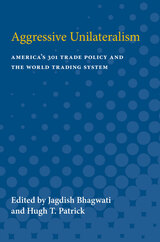

More than we ever anticipated, alliances among firms are changing the way business is conducted, particularly in the global, high-technology sector. The reasons are clear: companies must increasingly pool their capabilities to succeed in ever more complex and rapidly changing businesses. But the consequences for managers and for the economy have so far been underestimated. In this new book, Benjamin Gomes-Casseres presents the first in-depth account of the new world of business alliances and shows how collaboration has become part of the very fabric of modern competition.
Alliances, he argues, create new units of competition that do battle with one another and with traditional single firms. The flexible capabilities of these multi-firm constellations give them advantages over single firms in certain contexts, offsetting the advantage of a single firm's unified control. When managed effectively, alliances can strengthen a firm's competitive advantage and narrow the gap between leading firms and second-tier players. This often results in intensified rivalry, and the competition within an industry is transformed. Alliances often spread swiftly through an industry as firms jockey for advantage. Yet the very spread of alliances increases their costs and poses new limits on their use. Gomes-Casseres concludes that firms need to manage their constellations to enhance collaboration within their groups, while raising what he calls "barriers to collaboration" for rivals.
These ideas are developed and illustrated through original case studies of alliances among U.S., Japanese, and European firms in electronics and computers, including Xerox, IBM, and Fujitsu as well as other small and large companies. The book should be of interest to business academics, managers, and general readers concerned with contemporary capitalism.

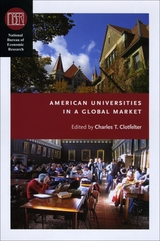
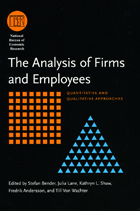
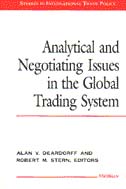
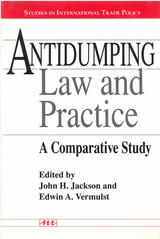

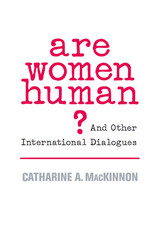
More than half a century after the Universal Declaration of Human Rights defined what a human being is and is entitled to, Catharine MacKinnon asks: Are women human yet? If women were regarded as human, would they be sold into sexual slavery worldwide; veiled, silenced, and imprisoned in homes; bred, and worked as menials for little or no pay; stoned for sex outside marriage or burned within it; mutilated genitally, impoverished economically, and mired in illiteracy--all as a matter of course and without effective recourse?
The cutting edge is where law and culture hurts, which is where MacKinnon operates in these essays on the transnational status and treatment of women. Taking her gendered critique of the state to the international plane, ranging widely intellectually and concretely, she exposes the consequences and significance of the systematic maltreatment of women and its systemic condonation. And she points toward fresh ways--social, legal, and political--of targeting its toxic orthodoxies.
MacKinnon takes us inside the workings of nation-states, where the oppression of women defines community life and distributes power in society and government. She takes us to Bosnia-Herzogovina for a harrowing look at how the wholesale rape and murder of women and girls there was an act of genocide, not a side effect of war. She takes us into the heart of the international law of conflict to ask--and reveal--why the international community can rally against terrorists' violence, but not against violence against women. A critique of the transnational status quo that also envisions the transforming possibilities of human rights, this bracing book makes us look as never before at an ongoing war too long undeclared.

International environmental law is often closer to home than we know, affecting the food we eat, the products we buy, and even the air we breathe. Drawing on more than two decades of experience as a government negotiator, consultant, and academic, Daniel Bodansky brings a real-world perspective on the processes by which international environmental law develops, and influences the behavior of state and non-state actors.
In self-contained chapters that offer a clear guide to a complex field, Bodansky answers fundamental questions about how international environmental law works. What role can law play in addressing global environmental challenges such as climate change, ozone depletion, and loss of biodiversity? How do environmental problems come onto the international agenda? What are the obstacles to international cooperation, and what can international environmental law do to address them? How do international rules develop? How are they put into practice and what makes them effective?

More than a decade ago, before globalization became a buzzword, Yves Dezalay and Bryant G. Garth established themselves as leading analysts of how that process has shaped the legal profession. Drawing upon the insights of Pierre Bourdieu, Asian Legal Revivals explores the increasing importance of the positions of the law and lawyers in South and Southeast Asia.
Dezalay and Garth argue that the current situation in many Asian countries can only be fully understood by looking to their differing colonial experiences—and in considering how those experiences have laid the foundation for those societies’ legal profession today. Deftly tracing the transformation of the relationship between law and state into different colonial settings, the authors show how nationalist legal elites in countries such as India, Indonesia, Malaysia, the Philippines, Singapore, and South Korea came to wield political power as agents in the move toward national independence. Including fieldwork from over 350 interviews, Asian Legal Revivals illuminates the more recent past and present of these legally changing nations and explains the profession’s recent revival of influence, as spurred on by American geopolitical and legal interests.
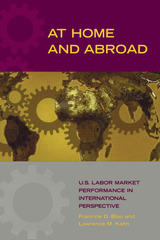
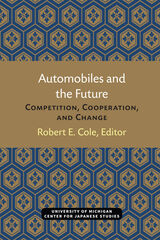
READERS
Browse our collection.
PUBLISHERS
See BiblioVault's publisher services.
STUDENT SERVICES
Files for college accessibility offices.
UChicago Accessibility Resources
home | accessibility | search | about | contact us
BiblioVault ® 2001 - 2024
The University of Chicago Press









